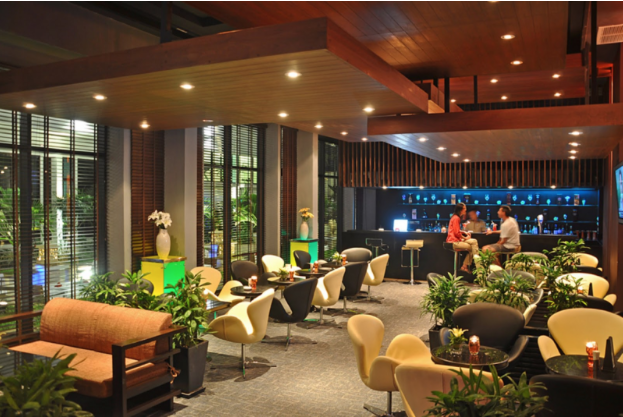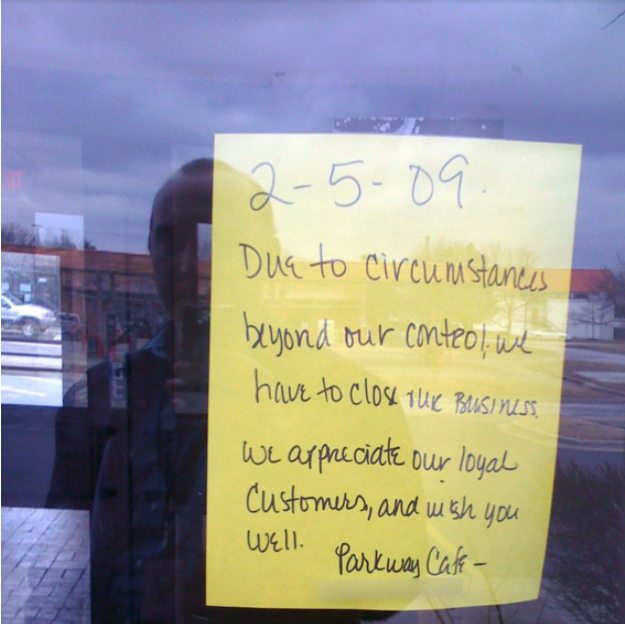
Photo Courtesy of Flickr Creative Commons
Owning a restaurant can be a roller coaster ride when it comes to finances. While you can predict with some success when you’ll busy versus when you’ll be slow and prepare yourself, sometimes things slow down for no reason. Before you stress out and imagine the worst case scenario, take a look at what you can do to get through them while staying afloat.
Don’t Do Anything Drastic. A bad day can be reason for concern, a bad week or month can be downright scary. Scary enough that you may be tempted to do something drastic like cut staff or reduce hours to save money. Payroll is one of your biggest expenses after all.
While this may be necessary in the future, it should not be the very first thing you do, especially if you have a small staff that is hard to replace. If you don’t know why your business is slow, then you don’t know when it could pick up again, and when it does, do you want to have no reliable employees to handle it? You can’t expect that once you let someone go that they’ll be available when you need them again, so until you know more, don’t lay off anyone.
Hiring a great staff is not easy, so if you have good people on board, find a way to keep them.
Look at the Root of the Problem. Is the restaurant slow because of the time of year? Are your competitors also facing the same? Once you’ve been in business for a while, you can predict when your slow periods will be, but if it’s the first year or two you’re in business, you may not be able to tell. A lot of restaurants don’t make it through the first few years, but there are a number of reasons.
If you know you’re slow because of the time of year (January is traditionally a slow month for restaurants, for example) then you can feel confident that business will pick up again soon. If, on the other hand, you’re alarmingly slow when you should be busy, or no other restaurant in town is facing the same troubles, then it’s time to take a long hard look at your business practices and figure out what you’re doing that’s causing the problem.
One way to figure out the problem is to listen to your customers. In general, customers will file complaints when they are unhappy but aren’t so quick to offer up praise. If you’ve been getting a lot of complaints lately about the same things (poor customer service or you’re always running out of things,) these are things you can and should fix immediately. If you don’t hear a lot of complaints, ask your staff. Servers and bartenders often overhear diners complaints, but may not be willing to let you know unless you ask.
It can also help to look at reviews of your restaurant online to see what people are saying. You may notice a negative trend that is causing diners to stay away.

Photo Courtesy of Flickr Creative Commons
Cut Unnecessary Expenses. When times are good, you probably aren’t as worried about extras like your staff hanging around an extra half hour or paying a bit more for certain products. Unfortunately small expenses add up and can mean the difference between laying off employees or not.
Take a good hard look at exactly how you’re spending every dollar and cut back where you can. For example, if you have Wi-Fi or cable and these aren’t necessary to your business (obviously, if you own a sports bar or coffee shop, these might be crucial) cut them back or turn them off completely. If you offer free bread, but notice that it doesn’t get eaten, maybe consider cutting back or at least only bringing it if a customer asks for it.
Another thing to look at is marketing costs. Advertising in print can cost money, but you can use social media for practically nothing.

Photo Courtesy of Flickr Creative Commons
Negotiate Whatever You Can. Instead of getting rid of something completely, see if you can negotiate with the provider. Things like the aforementioned cable and Internet can usually be negotiated, and even your vendors will likely be able to offer you something; after all, if you close your doors for good, vendors get nothing. They may be able to help you out temporarily if it means more business in the future.

Photo Courtesy of Flickr Creative Commons
Examine Food Waste. It’s easy to waste food, and doing so is literally like taking cash from your register and throwing it in the trash. If you don’t have a good inventory system, set one up now, and let your employees know that you will not tolerate unnecessary waste. If you’re wasting food because diners simply aren’t ordering a certain dish enough, consider a menu change in which you can use foods with a longer shelf life.
If you have a bar, keep tabs on it well. Liquor is a top money maker for most restaurants, but it’s also an extremely easy way to lose money from bartenders that over pour or give away one too many free drinks.
Spend Time in Your Restaurant. If you visit your restaurant once a week, or even spend a lot of time in the back office, you’ll never be able to truly get a handle on your costs. Something as simple as leaving the bathroom lights on overnight can cost you unnecessary cash, but you’ll never know if you aren’t there during opening or closing.
No matter how many times you tell your employees to watch food costs, overtime, or giving away freebies, if you’re not there to keep an eye on them, they won’t adhere to your rules one hundred percent. You can’t fault them necessarily; it’s human nature. But don’t ever let yourself think that your employees care as much about your restaurant and its future as you do.

Photo Courtesy of Flickr Creative Commons
Plan For the Future. No matter what type of restaurant you have or how successful you are, you will have slow times, and you won’t always know why. To combat this, it’s important to watch costs all the time, even when things are flush. You should also try to build up a small emergency fund if you don’t already have one; otherwise, something as minor as a broken cooler or extra slow month could put you on the road to shutting down. You don’t want to have to get a loan or secure financing every time something comes up, so it’s best to plan for a catastrophe now. If it doesn’t happen, it just means you have extra money.
All businesses, including restaurants, experience slow times now and then. The key to surviving them is being able to manage money wisely all the time, as well as having a plan for financial hardship.
Has your restaurant experienced slow times? If so, how did you handle it?


